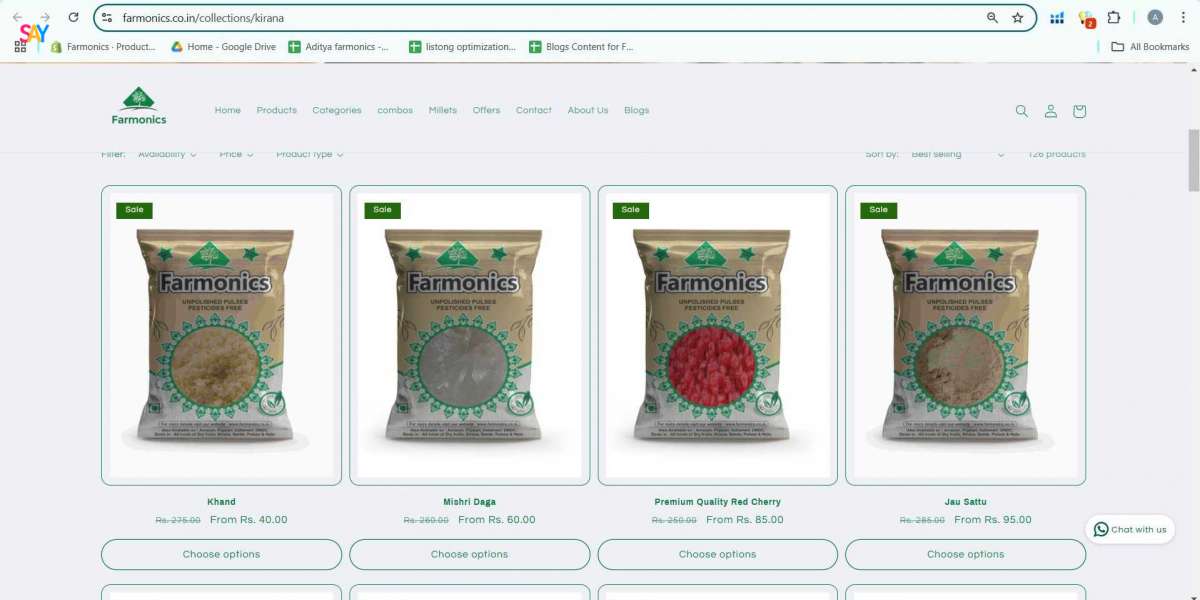The History of Kirana Stores
The history of Kirana stores in India dates back several decades. These stores have been in existence long before the advent of modern supermarkets, serving local communities by providing essential goods in small quantities. The concept of Kirana stores is deeply rooted in India's informal economy, where small-scale businesses thrive by offering personalized services to customers. They began as small general stores, often run out of residential homes, and grew into the ubiquitous retail presence that can be found in nearly every urban, suburban, and rural locality across the country.
The Importance of Kirana Stores
Kirana stores are not just small convenience shops; they are an integral part of India's socio-economic fabric. Their importance extends beyond mere convenience:
- Accessibility: Kirana stores are typically located in every neighborhood, ensuring that even remote areas have access to essential goods. They cater to local needs and serve a significant portion of India's population, especially in areas where large supermarkets may not be present.
- Affordability: These stores generally offer goods in smaller quantities, allowing customers to buy products based on their budget and immediate needs. This micro-retail model helps keep costs lower for consumers who may not afford to buy in bulk.
- Personalized Service: One of the defining characteristics of Kirana stores is the level of personal service they provide. Store owners often know their customers by name and understand their preferences, offering customized solutions that big retailers may struggle to provide.
- Employment: Kirana stores contribute significantly to employment, providing jobs for a large number of people, from store owners and staff to delivery personnel. This makes the Kirana sector an essential part of the local economy, particularly in smaller towns and rural areas.
The Changing Landscape of Kirana Stores
Over the past few years, Kirana stores have faced increasing competition from modern retail chains and e-commerce platforms like Amazon, Flipkart, and BigBasket. These larger players offer a wide variety of products and, in some cases, deliver directly to the customer's doorstep. Despite these challenges, Kirana stores have managed to retain their relevance by adapting to the changing market dynamics.
- Digital Transformation: Many Kirana stores have embraced digital tools to streamline their operations. Some have started using point-of-sale (POS) systems, while others have adopted mobile apps for managing inventories and interacting with customers. In some cases, Kirana stores have tied up with e-commerce platforms to offer delivery services, giving them an edge in the digital age.
- Partnerships and Networking: The rise of cooperative networks, where multiple Kirana stores work together, has enabled them to buy goods in bulk at discounted prices. This not only boosts profitability but also allows these stores to compete with larger retail chains by offering better pricing.
- Customer Loyalty: Kirana stores have a built-in advantage over larger competitors due to their deep connection with the community. Store owners often build trust and loyalty with customers through personalized attention, credit facilities, and understanding of local needs.
- Product Diversification: Many Kirana stores have expanded their product offerings beyond basic groceries to include organic products, health foods, ready-to-eat meals, and even electronics. This diversification helps them cater to the changing needs and preferences of modern consumers.
Challenges Facing Kirana Stores
While Kirana stores are undoubtedly an important part of India's retail ecosystem, they also face several challenges:
- Competition from Organized Retail: The growth of supermarkets and organized retail chains has resulted in increased competition for Kirana stores, especially in urban areas where space is limited, and customers have more choices.
- Regulatory Issues: The Kirana sector operates largely in the informal economy, and this can lead to challenges in terms of taxation and regulation. There is also a lack of standardized practices in the sector, which can sometimes create inefficiencies.
- Supply Chain Issues: Many Kirana stores struggle with managing inventory and ensuring a steady supply of goods. This is particularly difficult for smaller stores that lack the resources to negotiate better terms with suppliers or wholesalers.
The Future of Kirana Stores
Despite the challenges, Kirana stores continue to be a critical component of India's retail market. The rise of digital tools and e-commerce platforms presents both opportunities and challenges. Kirana stores that can successfully adapt to these new dynamics, embracing technology and enhancing customer experience, are likely to thrive in the future.
As India continues its journey toward modernization and urbanization, Kirana stores will likely remain relevant, evolving to meet the changing needs of consumers while retaining the core values that have made them an enduring part of Indian society.
In conclusion, Kirana stores are not just small businesses—they are a vital part of India's economy, culture, and way of life. They may face challenges from larger players, but their resilience, adaptability, and deep community connections ensure that they will continue to play a crucial role in shaping the future of retail in India.




